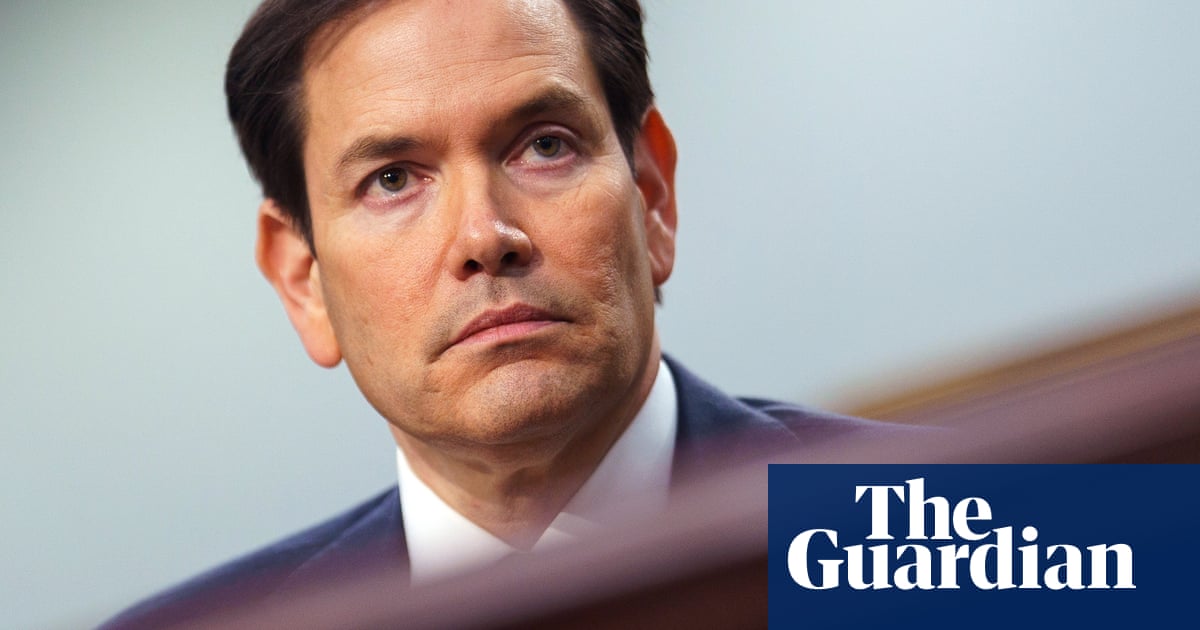The United States has said it will refuse visas to foreign officials who block Americans’ social media posts, asDonald Trump’sadministration wages a new battle over free expression.
Marco Rubio– the secretary of state who has controversially rescinded visas for activists who criticize Israel and ramped up screening of foreign students’ social media – said on Wednesday he was acting against “flagrant censorship actions” overseas against US tech firms.
He did not publicly name any official who would be denied a visa under the new policy. But last week he suggested to lawmakers that he was planning sanctions against a Brazilian supreme court judge, Alexandre de Moraes, who hasbattled X owner and Trump ally Elon Muskover alleged disinformation.
The administration of Trump– himself a prolific and often confrontational social media user – has also sharply criticized Germany and Britain for restricting what the US allies’ governments term hate and abusive speech.
Rubio said the United States will begin to restrict visas to foreign nationals who are responsible for “censorship of protected expression in the United States”.
“It is unacceptable for foreign officials to issue or threaten arrest warrants on US citizens or US residents for social media posts on American platforms while physically present on US soil,” Rubio said in a statement.
“It is similarly unacceptable for foreign officials to demand that American tech platforms adopt global content moderation policies or engage in censorship activity that reaches beyond their authority and into the United States,” he said.
“We will not tolerate encroachments upon American sovereignty, especially when such encroachments undermine the exercise of our fundamental right to free speech.”
Rubio has said he has revoked the US visas for thousands of people, largely students who have protested against Israel’s offensive in Gaza.
Among the most visible cases has beenRümeysa Öztürk, a Turkish doctoral student at Tufts University who had written an opinion piece in a student newspaper criticizing the school’s position on Gaza.
Masked agents arrested her on a Massachusetts street and took her away. A judge recently ordered her release.
Rubio on Tuesdaysuspended further appointmentsfor students seeking visas to the United States until the state department drafts new guidelines on enhanced screening of applicants’ social media postings.
Social media regulation has become a rallying cry for many in the US on the right since Trump was suspended from Twitter, now X, and Facebook, on safety grounds after his supporters attacked the US Capitol following his defeat in the 2020 election to Joe Biden.
In Brazil, where supporters of Trump ally Jair Bolsonaro similarly stormed the presidential palace, Congress and the supreme court in 2023 after Bolsonaro’s election loss, Moraes has said he is seeking to protect democracy through his judicial power.
Sign up toThis Week in Trumpland
A deep dive into the policies, controversies and oddities surrounding the Trump administration
after newsletter promotion
Moraestemporarily blocked X across Braziluntil it complied with his order to remove accounts accused of spreading disinformation.
More recently he ordered a suspension of Rumble, a video-sharing platform popular with conservative and far-right voices over its refusal to block the account of a user based in the United States who was wanted for spreading disinformation.
Germany – whose foreign minister met Wednesday with Rubio – restricts online hate speech and misinformation, saying it has learned a lesson from its Nazi past and will ostracize extremists.
JD Vance in a speech in Munich in Februarydenounced Germany for shunning the far-right.
In an essay Tuesday, a state department official pointed to social media regulations and said Europeans were following a “similar strategy of censorship, demonization and bureaucratic weaponization” as witnessed against Trump and his supporters.
“What this reveals is that the global liberal project is not enabling the flourishing of democracy,” wrote Samuel Samson, a senior advisor for the state department’s human rights office.
“Rather, it is trampling democracy, and Western heritage along with it, in the name of a decadent governing class afraid of its own people.”
